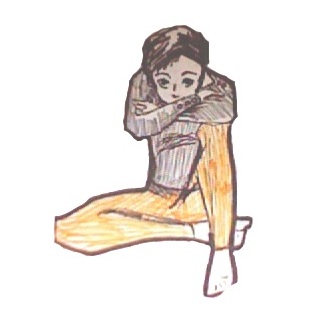
I can't always stick my nose into the heavier volumes of classical literature. Really, I would like to think of myself as one of those "only the classics" types, but every now and then it's good to find a novel and spend a couple nights with less intense fare. It's the same with everything else, really: you could try to live a life watching Bergman films, having dinners of roasted vegetables and merlot, but ever now and then you need to just eat a burger, watch The Mummy, and drink a beer.
So I needed a literature break, if you will. After all, I had just finished re-reading House of the Spirits by Isabel Allende (it's still fantastic), and was deciding between finishing Paradise Lost or starting Goethe's Faust. The second part of that sentence alone should make you roll your eyes, or maybe even throw up. Anyway, I was a bit sick of things that required analyzing. So I went to the library and grabbed two books: Carter Beats the Devil by Glen David Gold, and Water for Elephants by Sara Gruen.
In theory, the two books should go hand in hand, and are a good companion to the last "light reading" type novel that I read, The Adventures of Kavalier and Clay by Michael Chabon. Though of course neither come close to Chabon's prose or his story, at least Carter Beats The Devil proved itself to be a satisfying lead, despite a penchant for swashbuckling. Water for Elephants is promising, but falls flat at the end, victim of its own predictability.
Carter Beats The Devil is a very fictional retelling of the life of Charles Carter, one of the more well known magicians of the early 1900s through the 1920s. Though the story does not necessarily pull any new or fantastic plot turns and twists, the vibrancy of it, especially in the world of early 20s San Francisco that Gold paints. In truth, it does almost everything that a good story does; it gives us a hero, a villain, a cast of familiar characters, a love interest, and just enough of a plot twist at the end to leave us impressed and satisfied. Gold's prose is impressive, and though at times he seems to lose direction, the novel's second act is a well-paced mystery-thriller. That, and Gold seems to have such a fine understanding of stage magic and its application, that we are given just the treatment that the audiences back then got: we are both amazed by the effect and impressed by its secrets. The final magic spectacle, where Carter indeed does beat the devil (here in the form of a vengeful and psycopathic rival magician) made the hair on the back of my neck stand up when I imagined seeing it in the theatre. This is a perfect beach or rainy day read, and should only take a few days. Still, if you have nothing else to do, give it a go, it's bound to entertain.
Sara Gruen's Water for Elephants is also a story about entertainers, but instead of creating the mystery and intrigue that it seems to promise (or that any story about circuses in the Great Depression would (think Carnivàle)), ends up being a sappy love story, with colorful images that, unfortunately, don't have enough space to hold the novel up. The story is told as a memory, an old man named Jacob Jankowski remembering his early days working for the circus during the 1930s. Jacob himself is an almost nauseatingly good guy, and his altruism and style of talking ("It's hard to conceive of such evil.") make him seem like an unbelievably flawless character. The "incredible odds" which Jacob and the horse trainer, Marlena, need to overcome are hardly so; and the last few chapters involve nearly everything falling into place so easily that you have to wonder if there was really any struggle at all. The book has so many elements in it that would give it strength, but in the end it all seems thrown away. Certainly it's not a short book, over 300 pages long, but in the end I wanted an expansion of everything--time, place, descriptions of locations and minor characters. Instead, the more colorful elements of the story are rushed through for the sake (I suppose) of Plot. And though Gruen seems to have a pretty good idea of what she's talking about, and the era seems well researched and understood, it's still slightly off, or off-tempo; so she's playing the right tune, but there's something not quite enjoyable about it. Of course, if what you want is total escapism, well, go for it. But in my opinion, if it weren't for the sex, you could do a book report on it in 7th grade.
Now that those two books are over, I have a couple more lined up to read: there's a collection of essays on medieval bestiaries, jung, more folktale books, and, of course, the ever-present Paradise Lost, which I keep coming back to and leaving all over again. It's all right though, it forgives me every time.



















